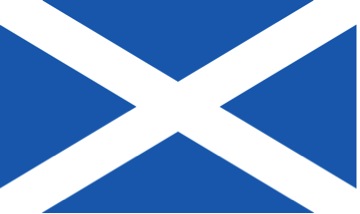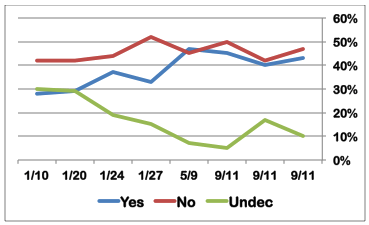| « Israeli High Crimes Against Peace Examined | Mae Brussell, the GodMother of Targeted Individuals » |
Fail Britannia - They can't help it ...
Michael Collins

… it's their nature. The United Kingdom (UK) Treasury and the British Broadcasting Corporation (BBC) were caught red handed trying to scare Scottish voters into voting No on independence in the September 18 referendum (HeraldScotland). The two government organizations did so using confidential information about the Royal Bank of Scotland (RBS) obtained by the UK Treasury. Based on this insider government information from Treasury, BBC then ran a story (Sep 11) about RBS leaving Scotland before the RBS board decided on its announcement. This had the clear effect of embarrassing the independence movement by showing that a major bank was leaving Scotland, which fed other scare tactics about Scotland suffering should voters choose independence and freedom.
The original BBC story on September 11 mentioned charges by Scottish First Secretary Alex Salmond, leader of the Yes effort that said:
"Scottish First Minister Alex Salmond has accused the Treasury of leaking sensitive market data about RBS.
"A Treasury source dismissed Mr Salmond's claim as 'absurd', calling it a 'desperate distraction tactic'," BBC, Sep 11
But, on September 12, BBC Economics Editor Robert Peston headlined his column with this: "Treasury briefed RBS move before board decision." Peston reported that:
"Treasury was briefing about its plans to relocate before the board had formally decided to release this information.
"It is certainly unusual for details of company decisions to be released to the media by the government before those decisions have been made." Robert Peston, BBC, Sep 12
"Unusual" is one way to put it. "Illegal" and "unethical" might be another.
The British ruling elite and their agents like Tony Blair, David Cameron, etc. thought they were clever by allowing Scotland to hold a referendum on independence. There are only two choices: Yes for an independent Scotland and No for Scotland to remain a part of the UK.
A Yes vote for independence was simply inconceivable to the British establishment. The early polling validated their judgment. In January, Yes was backed by only 28% of Scots, No at 42%, and undecided 30%. Over the past few days, the gap between yes and no has closed considerably. Why?

Public debates between independence leader Alex Salmond and "Better Together" leader Alastair Darling helped the Yes vote. Salmond, First Secretary of Scotland and the head of the Scottish National Party, had strong showings. Shrewd campaign tactics by Yes supporters targeted key voting groups and produced results. Yet, the independent Scotland position led in only one poll, the September 5, YouGov/Sunday Times, 47% Yes and 45% No.
The date that the YouGov/Sunday Times was announced, September 5, marked the lead in to the current scandal involving the UK Treasury, Royal Bank of Scotland (RBS), and the BBC.
On September 9, the governor of the Bank of England told Scots there would be no formal currency union if they vote yes. The implication is that they'll have to give up the pound. On the September 10, a Guardian headline read "Banks say: we'll leave Scotland if the independence vote is a yes." The BBC ran its story about the Royal Bank of Scotland on the 11th. Yesterday, retailers warned Scots that there would be higher costs of doing business in an independent Scotland, passed on to consumers. The BBC also published a warning over the weekend headlined, "Deutsche Bank warning over Scottish independence."
Even thought the Economics Editor admitted the, at the very least, inappropriate collusion between the UK Treasury and BBC, somehow the "Deutsche Bank warning" story was approved for publication. The German bank, as an institution, did not issue the warning of a "great depression" in England and Scotland if Yes prevails. Two executives at the bank gave interviews indicating this outcome. Thus, the headline confuses individual opinions with institutional policy.
That's how Rule Britannia may turn into Fail Britannia. The UK press is marching as a unit in opposition to independence. The majority of corporate leaders share a similar unity of purpose. There are even the condescending "Better Together" commercials featuring celebrities asking the Scots to vote No, as though any of these celebrities would give the average Scottish voter the time of day. It all seems so condescending.
The Scots should be grateful that it is just condescension. The United States and UK support a government in Kiev that responded to separatist sentiments in the eastern Ukraine with a military invasion and bombardment of major population areas. There's always a silver lining. You just have to look carefully.
Creative Commons 3.0
For Pamela Coverdale


